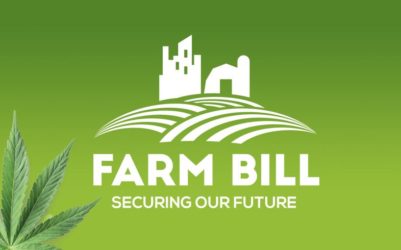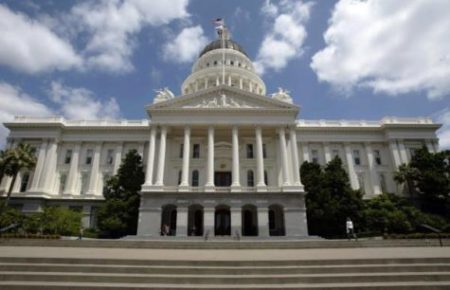[Updates at end of article.]
The 2018 Farm Bill (the Agricultural Improvement Act of 2018) enacted by the US Congress opened the hemp industry for business. There are, however, misperceptions and confusion as to what the 2018 Farm Bill does. The 2018 Farm Bill established the direction of farm and food policy for five years through 2023. The Farm Bill addresses a variety of policies and programs but the biggest news was the treatment of hemp.
Hemp Background
Both marijuana and hemp are from the same species of plant, Cannabis sativa, but from different varieties or cultivars. Hemp is a low THC variety of cannabis, legally defined as less than 0.3 percent THC (2018 Farm Bill section 10113). Hemp is used in a number of products such as paper, fabrics, food and beverages, nutrition products, construction materials, and other industrial goods. Hemp is also used for extraction of CBD (Cannabidiol). Due to US restrictions on hemp production, however, the estimated $700 million annual retail hemp product sales in the US are significantly dependent on imports.
Prior to the late 1950s, hemp in the United States was considered an agricultural commodity, and the U.S. Department of Agriculture (USDA) supported its production. Control and regulation of hemp has been administered by the US Drug Enforcement Administration (DEA) since the late 1950s. The definitions of marijuana under the 1937 Marihuana Tax Act and the 1970 Controlled Substances Act (CSA) do not distinguish between low THC cannabis plants (hemp) and high THC cannabis plants – both were considered Schedule I controlled substances. Some argued that the definition under the Controlled Substances Act exempts industrial hemp under its exclusions for stalks, fiber, oil, cake, and seeds, but the DEA has consistently disagreed with this position.
Federal policy regarding hemp was significantly altered with the 2014 Farm Bill (Agricultural Act of 2014). The 2014 Farm Bill allowed state departments of agriculture to grow hemp under an agricultural pilot program, and certain research institutions, in states with laws allowing for hemp production. Further, the US Congress used appropriations bills to block the US Department of Agriculture from prohibiting the transportation, processing, sale, or use of industrial hemp that is grown or cultivated in accordance with the 2014 Farm Bill, and also blocked the DEA and other federal law enforcement authorities from interfering with state agencies, hemp growers, and agricultural research.
Nevertheless, there was significant disagreement concerning certain aspects of the 2014 Farm Bill including the definition of industrial hemp, who could cultivate hemp, the scope of the commercial activity allowed, the transportation and sale of hemp across state lines, and the importation of viable hemp seeds. (See 2016 Congressional correspondence regarding hemp to USDA, DEA & FDA and the CRS Memo with 2016 Joint DEA, USDA & FDA Statement of Principles on Industrial Hemp.)
2018 Farm Bill
The 2018 Farm Bill establishes a new federal hemp regulatory system under the US Department of Agriculture which aims to facilitate the commercial cultivation, processing, and marketing of hemp, and essentially treat hemp like any another agricultural commodity. It removes hemp and hemp seeds from the statutory definition of marijuana and the DEA schedule of Controlled Substances (that removal was effective upon the enactment of the 2018 Farm Bill in December 2018). It even makes hemp an eligible crop under the federal crop insurance program. The 2018 Farm Bill also allows the transfer of hemp and hemp-derived products across state lines provided the hemp was lawfully produced under a State or Indian Tribal plan or under a license issued under the USDA plan.
This does not mean, however, that anyone can start growing hemp. Hemp cultivation and production will remain subject to significant regulation at the federal, state and local levels. Under the 2018 Farm Bill, each state (or Indian tribe, territory or possession) department of agriculture must submit to the USDA a plan for state licensing and regulation of hemp.
The USDA is currently working on its federal hemp cultivation regulations and expects to have them in place Fall of 2019. Then it will begin to approve state programs. The goal is to have regulatory programs in place for the 2020 planting season. Until then, any current hemp farming will have to operate under the more restrictive 2014 Farm Bill. That 2014 Farm Bill legal authority expires 12 months after the USDA has established the plan and regulations required under the 2018 Farm Bill. [**Update 10/1/20 – The United States Congress extended that expiration to September 30, 2021 – see section 122 of HR 8337.]
The 2018 Farm Bill also outlines actions that are considered violations of federal hemp law including activities such as cultivating without a license or producing cannabis with more than 0.3 percent THC. It sets forth possible punishments for violations and identifies which activities qualify as felonies.
Finally, the 2018 Farm Bill does not affect or modify the authority of the Secretary of Health and Human Services or the Commissioner of Food and Drugs to regulate hemp under applicable US Food and Drug Administration laws. (See the 2019 Hemp Legal Opinion by USDA General Counsel.)
State Hemp Regulations
The 2018 Farm Bill applies to all states and Indian tribes (as well as the District of Columbia, Puerto Rico, and any other territory or possession of the United States). A state, territory, or Indian tribal government hemp regulatory plan must be approved by the USDA before that hemp plan can take effect. For any state, territory, or Indian tribal government that does not submit a hemp regulatory program, the USDA will create a regulatory program for hemp cultivators in that jurisdiction to apply for licenses.
States and Indian tribes retain authority to prohibit or restrict cultivation of hemp if they choose but cannot prohibit the interstate transportation of hemp lawfully produced. (There are conflicting cases on whether States or Indian tribes can prohibit interstate transportation of hemp lawfully produced under the prior 2014 Farm Bill. The USDA General Counsel has issued an opinion that they may not prohibit interstate transportation.)
Section 297B of the 2018 Farm Bill sets out certain provisions that must be included in every state hemp regulatory plan:
i.) a practice to maintain relevant information regarding land on which hemp is produced in the State or territory of the Indian tribe, including a legal description of the land, for a period of not less than 3 calendar years;
ii.) a procedure for testing, using postdecarboxylation or other similarly reliable methods, delta-9 tetrahydrocannabinol concentration levels of hemp produced in the State or territory of the Indian tribe;
iii.) a procedure for the effective disposal of: plants, whether growing or not, that are produced in violation of this subtitle; and products derived from those plants;
iv.) a procedure to comply with the enforcement procedures under subsection (e) of the Farm Bill;
v.) a procedure for conducting annual inspections of, at a minimum, a random sample of hemp producers to verify that hemp is not produced in violation of this subtitle;
vi.) a procedure for submitting the information described in section 297C(d)(2) of the Farm Bill to the Secretary not more than 30 days after the date on which the information is received; and
vii.) a certification that the state or Indian tribe has the resources and personnel to carry out the practices and procedures described in clauses (i) through (vi) of the Farm Bill.
The coming months will be busy for the USDA as well as state and local jurisdictions as they develop their hemp regulatory systems. We are tracking the development of federal hemp regulations as well as California state and local (county & city) hemp regulations and laws.
**Update 10/29/19: The USDA today announced the establishment of the U.S. Domestic Hemp Production Program and released its awaited draft hemp rule (USDA Hemp Rule) which will be published in the Federal Register allowing hemp to be grown under federally approved plans and making hemp producers eligible for a number of agricultural programs. The USDA hemp rule includes provisions to approve hemp production plans developed by states and Indian tribes. The USDA also developed guidelines for hemp testing (USDA Hemp Testing Guidelines) and sampling (USDA Hemp Sampling Guidelines) that are being issued concurrently with this rule.
**Update 1/16/21: The USDA published its final hemp rule on January 15, 2021, providing a definitive regulatory framework for hemp production throughout the United States. The regulations take effect March 22, 2021. See the USDA Final Hemp Rule.
Contact us to learn more about hemp licensing and regulation.


